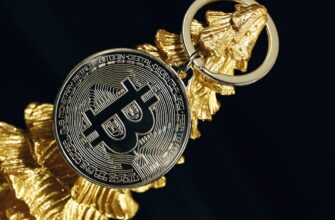🔐 USDT Mixer — Total Privacy for Your Crypto
Experience fast and secure USDT TRC20 mixing. 🌀
No accounts. No records. Just full anonymity, 24/7. ✅
Service fees start at only 0.5%.
- Introduction: Navigating Crypto in the Light of Shariah Law
- What is Riba? The Islamic Prohibition Explained
- Cryptocurrency 101: How Digital Assets Function
- The Core Debate: Does Cryptocurrency Constitute Riba?
- Arguments Against Crypto (Potential Riba Concerns)
- Arguments Supporting Crypto (Non-Riba Perspectives)
- Islamic Scholarly Opinions on Crypto
- Halal Alternatives: Shariah-Compliant Crypto Options
- Practical Guidelines for Muslims Using Crypto
- FAQ: Your Crypto Riba Questions Answered
- 1. Is Bitcoin halal or haram?
- 2. Can I earn staking rewards without riba?
- 3. Are stablecoins like USDT riba-free?
- 4. How do I find Shariah-compliant cryptocurrencies?
- 5. Does mining crypto involve riba?
- Conclusion: Balancing Faith and Finance
Introduction: Navigating Crypto in the Light of Shariah Law
As cryptocurrency reshapes global finance, Muslims face a critical question: Is crypto riba? This inquiry strikes at the intersection of modern technology and ancient Islamic principles prohibiting riba (usury/interest). With crypto adoption surging in Muslim-majority nations, understanding its compliance with Shariah law becomes essential. This article explores the debate, dissecting scholarly opinions, Quranic interpretations, and halal alternatives to guide ethical investment decisions.
What is Riba? The Islamic Prohibition Explained
Riba, explicitly forbidden in the Quran (Surah Al-Baqarah 2:275-279), refers to:
- Unjust gain in lending/borrowing: Charging interest on loans.
- Exploitative exchange: Trading unequal quantities of the same commodity (e.g., gold for gold).
- Guaranteed profit without risk: Earning returns disconnected from real economic activity.
Islamic finance avoids riba by emphasizing asset-backed transactions, profit-sharing (Mudarabah), and risk-sharing partnerships (Musharakah).
Cryptocurrency 101: How Digital Assets Function
Cryptocurrencies like Bitcoin operate via blockchain technology:
- Decentralization: No central authority (e.g., banks or governments).
- Limited supply: Many cryptos have fixed maximum supplies (e.g., 21 million Bitcoin).
- Volatility: Prices fluctuate based on speculation, adoption, and market sentiment.
- Use cases: Payments, store of value, and speculative trading.
The Core Debate: Does Cryptocurrency Constitute Riba?
Scholars remain divided:
Arguments Against Crypto (Potential Riba Concerns)
- Speculative trading: Short-term buying/selling resembles gambling (Maysir), often involving leveraged positions that mimic interest-based loans.
- Staking/lending rewards: Earning “interest” via crypto staking platforms may replicate riba structures.
- Lack of intrinsic value: Critics argue cryptos aren’t backed by tangible assets, making gains purely speculative.
Arguments Supporting Crypto (Non-Riba Perspectives)
- Asset classification: If treated as digital property (Mal), trading crypto for profit is permissible like other commodities.
- Utility value: Blockchain enables real-world applications (e.g., smart contracts), providing functional worth.
- Inflation resistance: Fixed-supply cryptos hedge against fiat currency devaluation, aligning with Islamic wealth preservation goals.
Islamic Scholarly Opinions on Crypto
Key fatwas and positions:
- Permissible (Halal): Indonesia’s Nahdlatul Ulama (2018) allows crypto as a commodity. Dubai’s Shariah Board approved XDC token.
- Conditionally Acceptable: Malaysia’s SC requires Shariah-compliant screening. Scholars often mandate avoiding speculative trades.
- Prohibited (Haram): Turkey’s Diyanet (2018) banned crypto, citing volatility and anonymity risks. Egypt’s Dar al-Ifta likened it to gambling.
Halal Alternatives: Shariah-Compliant Crypto Options
For risk-averse investors:
- Islamic Coin (ISLM): Allocates 10% of issuance to charity; governed by Muslim scholars.
- Gold-backed tokens: Cryptos like Pax Gold (PAXG) represent physical gold, satisfying asset-backing requirements.
- Shariah-certified exchanges: Platforms like WahedX screen coins for compliance.
Practical Guidelines for Muslims Using Crypto
- Avoid interest-yielding products (e.g., crypto savings accounts).
- Prioritize long-term holding over day trading.
- Verify projects with real utility (DeFi, NFTs for art/IP).
- Consult local scholars for personalized rulings.
FAQ: Your Crypto Riba Questions Answered
1. Is Bitcoin halal or haram?
Opinions differ. Some scholars permit it as a digital asset, while others prohibit it due to volatility. Context matters—avoiding speculation leans toward permissibility.
2. Can I earn staking rewards without riba?
Only if rewards derive from service fees (e.g., validating transactions) rather than guaranteed interest. Proof-of-Stake coins require careful scrutiny.
3. Are stablecoins like USDT riba-free?
Problematic if reserves include interest-bearing assets. Opt for fully collateralized or gold-backed alternatives.
4. How do I find Shariah-compliant cryptocurrencies?
Seek coins certified by bodies like Bahrain’s Shariyah Review Bureau or consult platforms like IslamicFinanceGuru.
5. Does mining crypto involve riba?
Mining itself isn’t riba, but electricity costs and environmental impact may raise ethical concerns (Israf).
Conclusion: Balancing Faith and Finance
Whether crypto constitutes riba hinges on usage, not the technology itself. By avoiding speculative excess, prioritizing asset-backed tokens, and seeking scholarly guidance, Muslims can navigate this space ethically. As regulatory frameworks evolve, ongoing dialogue between fintech innovators and Islamic jurists remains vital to align digital finance with timeless spiritual principles.
🔐 USDT Mixer — Total Privacy for Your Crypto
Experience fast and secure USDT TRC20 mixing. 🌀
No accounts. No records. Just full anonymity, 24/7. ✅
Service fees start at only 0.5%.








